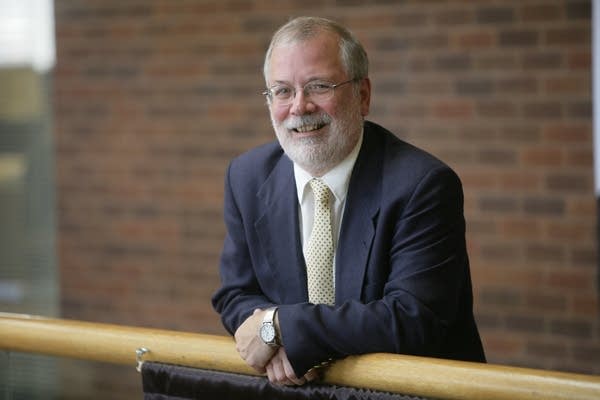On transportation issues, Minnesota leads the pack

By Lee Munnich
The health care debate in Washington has got people wondering whether there is any hope for bipartisan decisions on the big issues facing our society. There was a glimmer of hope for bipartisanship last month at a forum on transportation policy held at the University of Minnesota's Humphrey Institute of Public Affairs.
The forum, attended by 170 transportation and policy leaders, showcased a recent study by the National Transportation Policy Project (NTPP) of the Bipartisan Policy Center. The leaders who put together the report, "Performance Driven: A New Vision for U.S. Transportation Policy," included former Rep. Martin Sabo, who kicked off the event as part of the Martin Olav Sabo Lecture Series hosted by the Humphrey Institute.
The group's recommendations are based on the simple proposition that U.S. transportation policy needs to be more performance-driven, more directly linked to a set of clearly articulated goals, and more accountable for results. The NTPP study suggests five national goals:
Create a More Connected Minnesota
MPR News is your trusted resource for the news you need. With your support, MPR News brings accessible, courageous journalism and authentic conversation to everyone - free of paywalls and barriers. Your gift makes a difference.
Economic growth
National connectivity
Metropolitan accessibility
Energy security and environmental protection
Safety
The group has developed metrics for measuring performance toward each of these goals. It recommends formula funding for transportation system preservation and competitive programs for capacity expansion, and urges that this funding be focused in two areas: national connections and metropolitan regions. The report also recommends getting the prices right, and more directly charging users for the full cost of their use.
Many of these ideas are included in legislation introduced last summer by Rep. James Oberstar, D-Minn. The legislation is currently stalled, waiting for the health care debate to conclude and for the resolution of a timetable and funding approach for a new transportation plan.
But Minnesota is already ahead of the game on performance-based approaches to transportation. Three examples:
The I-35W Congestion Relief Project
In 2007, Minnesota won a $133 million federal grant and matched this funding with an additional $50 million in state funds to implement a performance-based congestion relief project on I-35W and Cedar Avenue. The project includes congestion pricing with expansion of the MnPASS express lanes, which have worked well on I-394, to I-35W; new transit improvements to speed buses from suburban park-and-rides to downtown Minneapolis and double-bus lanes on Marquette and 2nd Avenues to move buses quickly through the downtown area; technology enhancements to provide better information to drivers and bus riders; and an innovative program called eWorkPlace to promote telework as an alternative to driving to work. This project will significantly relieve congestion and provide a national model for future performance-based projects.
Toward Zero Deaths
In 2002, the Minnesota Department of Transportation and Office of Public Safety launched a performance-based program to reduce traffic fatalities in the state. The program, called "Toward Zero Deaths," has motivated a range of public, private and non-profit organizations to work together to drive down the number of deaths on roadways. The strategies have included targeted speed enforcement, drunken driving sweeps, improved coordination of emergency response systems, and most recently a successful effort to persuade the state Legislature to pass a primary seat-belt law. This performance-based approach has already helped reduce Minnesota road fatalities from 657 in 2002 to 455 in 2008, a drop of more than 30 percent.
Mileage-based user fees
Minnesota has been a national leader in developing strategies for a new system of funding transportation based on user costs and benefits. This system, known as mileage-based user fees or vehicle-miles-traveled fees, is being considered as an alternative to the gas tax, which is becoming a less and less adequate source of funding for the nation's transportation system.
U.S. transportation policy needs to be more performance-driven, more directly linked to a set of clearly articulated goals and more accountable for results. The bipartisan plan of the National Transportation Policy Project offers a bold and hopeful approach for transportation reform.
Lee Munnich is a senior fellow and director of the State and Local Policy Program at the University of Minnesota's Humphrey Institute of Public Affairs.
